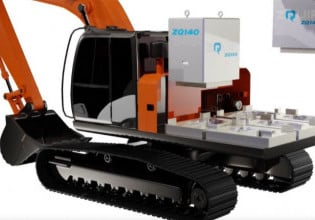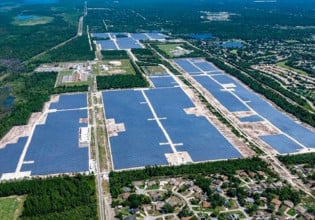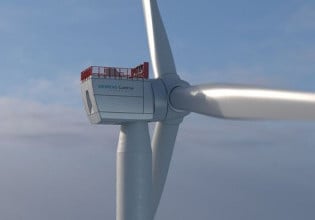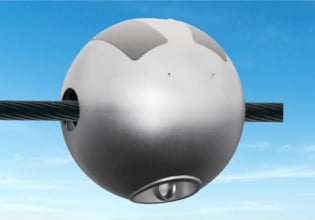Ford Enhances R&D Capabilities with New Global Battery Center
Ford Motor Company announces the creation of its new battery research and development center, Ford Ion Park, for developing and up-scaling battery and battery cell manufacturing.
The multinational automaker, Ford Motor Company, recently announced the creation of a new global battery center for excellence. This center is to be named Ford Ion Park and will be home to a centralized team of cross-functional battery technology experts. Ford aims to use this site to accelerate research and development (R&D), as well as optimize and up-scale the manufacturing of battery cell technologies.
Ford Motor Co. engineers, Mary Fredrick and Dane Hardware measure the voltage of a battery at the Battery Benchmarking and Test Laboratory. Image used courtesy of Ford
Ford Ion Park
The park will be situated in SouthEast Michigan, U. S. and will be home to a team of 150 individuals with different backgrounds of expertise ranging from battery technology development, research, planning, purchasing, manufacturing, to quality and finance. Ford will be using the center for battery R&D, and to scope out any potential integration and innovation opportunities associated with the battery technology value chain.
Battery technology for electric vehicles (EVs) is in high demand as automotive companies and their customers move toward a more clean and energy-efficient future with zero emissions. In a recent news release, Ford's Chief Product Platform and Operations Officer, Hau Thai-Tang expressed that “investing in more battery R&D ultimately will help us speed the process to deliver more, even better, lower-cost EVs for customers over time.”
Thai-Tang went on to say: “We are modernizing Ford’s battery development and manufacturing capabilities so we can better control costs and production variables in-house and scale production around the world with speed and quality.”
The Ford Ion Park team will be working together with staff working within Ford and those at Ford’s new Battery Benchmarking and Test Laboratory, Ford Customer Service Division. Key suppliers and partners of the automaker will also be involved in battery research and innovation projects. Ford’s current Director of Electrified Powertrain Engineering, Anand Sankaran, will be heading up the Ford Ion Park team. Sankaran has been working with Ford for 30 years and among his awards and technical innovations, he holds 32 U.S. patents in automotive power electronics and hybrid vehicle technologies. Sankaran is also a fellow of the Institute of Electrical and Electronics Engineers.
Late next year, Ford intends to open the $185 million collaborative learning lab in Southeast Michigan. The 200,000 sq.-ft. learning lab will provide cutting-edge equipment to trial new manufacturing techniques. New manufacturing capabilities will enable Ford to scale up winning battery cell designs with innovative materials.
Ford’s Battery Benchmarking and Test Laboratory
Last year, Ford opened its $100 million, 185,000 sq.-ft. Battery Benchmarking and Test Laboratory. The lab is located in Allen Park, Michigan, and has 150 test chambers and 325 channels for development work. This facility will be used to test and identify the most suitable battery cells and chemistries to power Ford’s EVs and meet customer demands. The lab contains battery cell and pack test rooms and test benches. Benchmarking facilities also provide support for battery cell design validation, calibration of controls, pack development, and pilot battery pack projects with different chemistries.
In the same news release, Sankaran commented: “While some automakers have placed their bets, we are going to use this lab with the help of partners and suppliers to fine-tune our batteries to our vehicles and customer needs – exploring next-generation lithium-ion solutions, including solid-state batteries,” Sankaran said.






